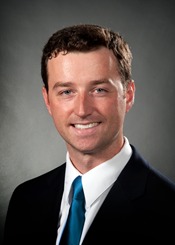Evolution of Work-From-Home Preferences in Radiation Therapy Physics and Dosimetry From 2020 to 2022
A Riegel1,2*, J Antone1, Y Cao1,2, (1) Department of Radiation Medicine, Northwell Health Cancer Institute, Lake Success, NY, (2) Donald and Barbara Zucker School of Medicine at Hofstra/Northwell, Hempstead, NY 11549
Presentations
TU-D930-IePD-F6-6 (Tuesday, 7/12/2022) 9:30 AM - 10:00 AM [Eastern Time (GMT-4)]
Exhibit Hall | Forum 6
Purpose: The COVID-19 pandemic forced the radiation oncology community to rethink how to deliver care while minimizing infection risk to patients and staff. One solution was migrating from working on site to working from home (WFH). Six weeks after initiating WFH, we surveyed physics and dosimetry staff to evaluate the transition. Two years later, most staff work on site but interest in WFH continues. We have re-surveyed the group to assess the long-term WFH experience and gauge the potential of permanent WFH arrangements.
Methods: Dosimetrists and physicists were given a 12-question survey about WFH in May 2020. Questions included technological issues such as connectivity and resource availability, worker focus, motivation, and efficiency, additional responsibilities during the pandemic such as childcare, and future preferences regarding WFH. These questions and a few supplementary were added to a repeat survey in February 2022. Results from 2020 and 2022 were compared.
Results: There were 32 and 31 survey respondents in 2020 and 2022 respectively. In 2022, 65% of participants reported some degree of WFH compared to 69% in 2020. Overall, 57% and 60% reported being more focused and efficient respectively in 2022, 16% and 22% higher than 2020. Motivation remained unchanged from 2020 to 2022, with 87% of staff reporting the same or more motivation at home compared to the office. Future WFH preferences were largely unchanged from 2020 to 2022: Most staff preferred a hybrid office/WFH approach (75% in 2020, 73% in 2022). In general, dosimetrists were more positive about WFH than physicists (100% vs. 74%). Lack of commute (55%) and missing socialization (35%) were the most commonly reported advantages and disadvantages of WFH.
Conclusion: Physicists and dosimetrists are interested in continued WFH arrangements despite waning COVID-19 precautions. Developing long-term WFH policies may be necessary to ensure productivity and employee satisfaction.
Keywords
Dosimetry, Radiation Therapy, Remote Work
Taxonomy
Contact Email



